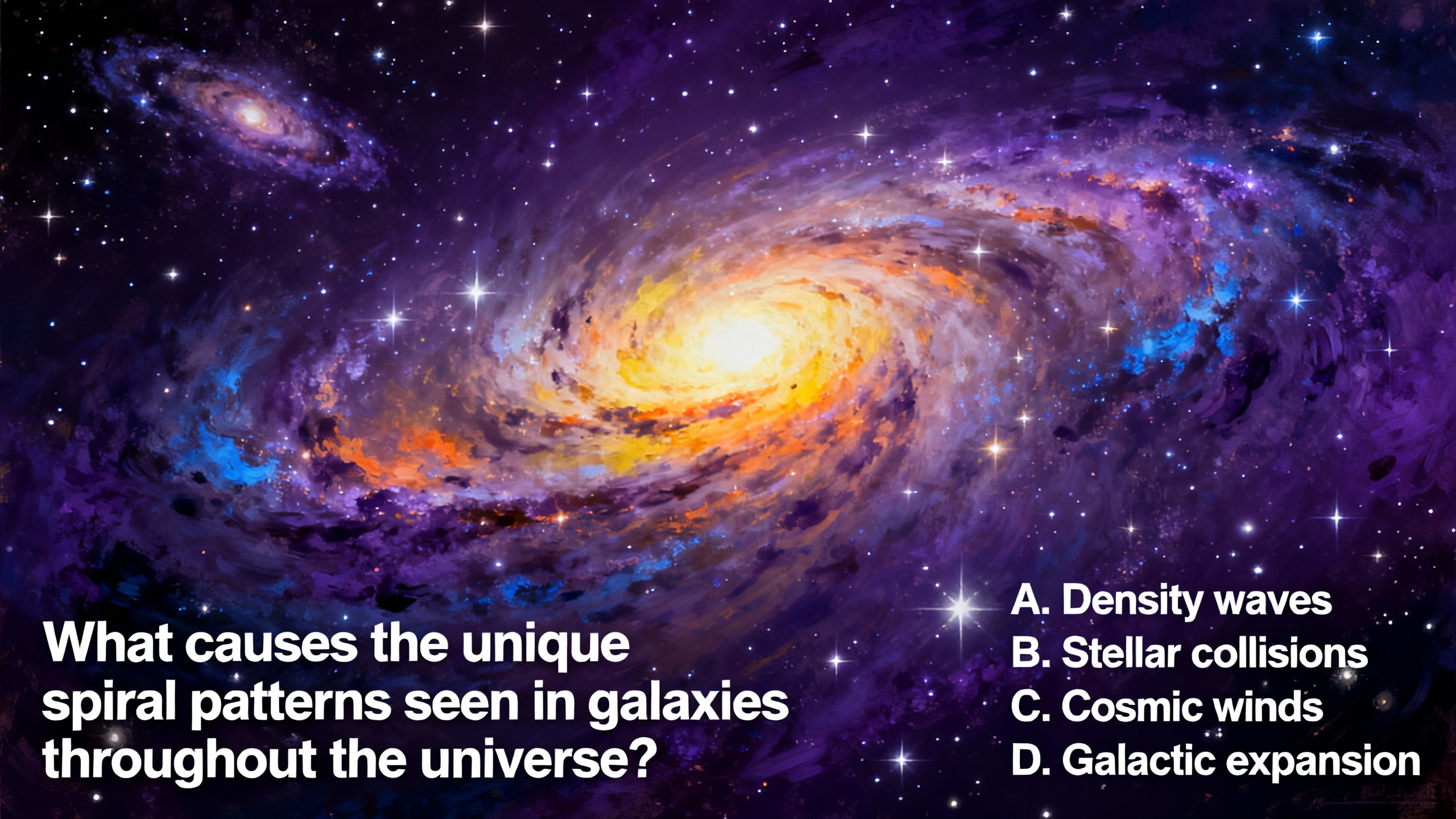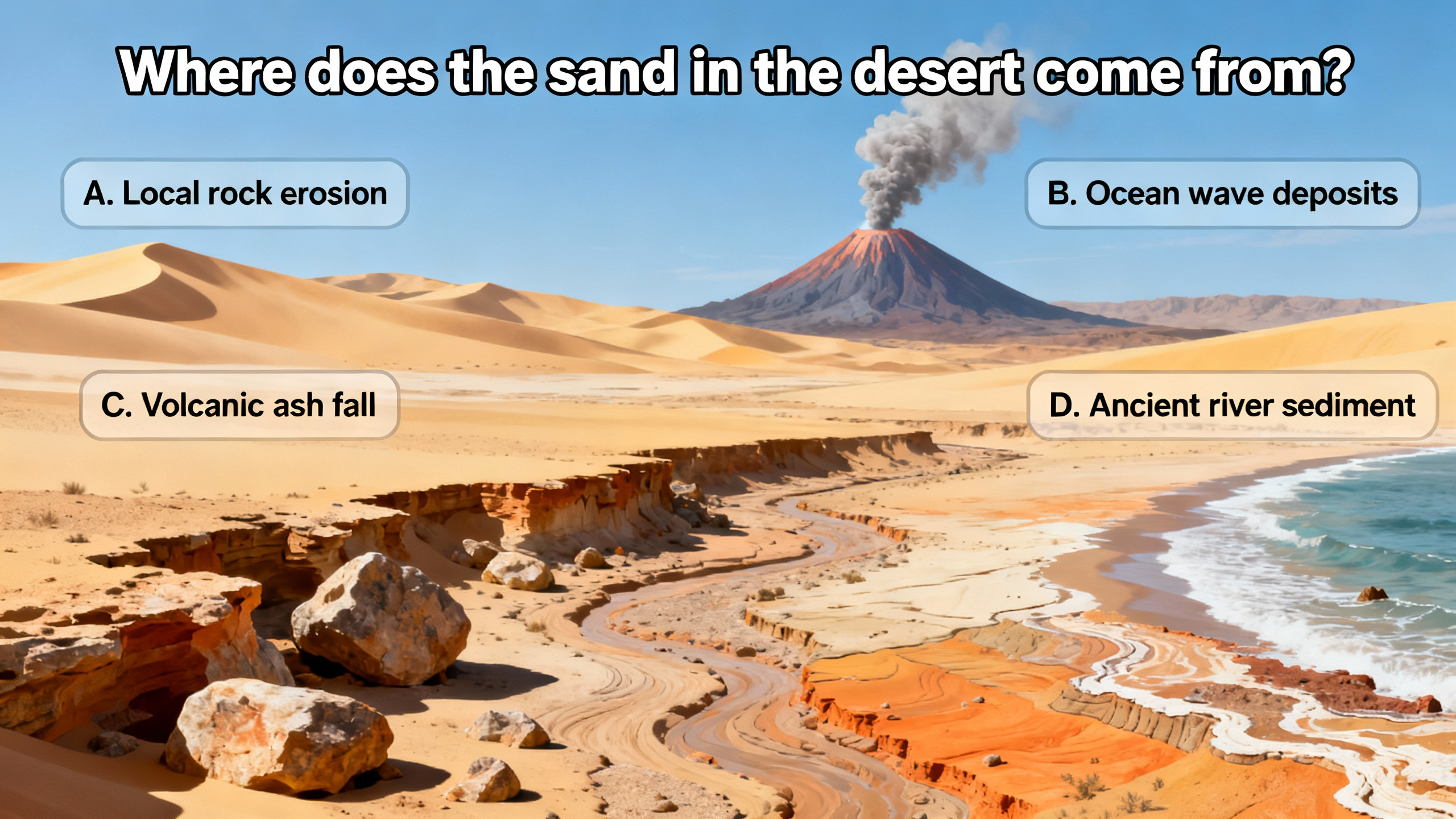The Mystery of Galactic Spiral Patterns
The universe is a vast expanse filled with countless celestial wonders, and one of the most captivating sights is the unique spiral patterns seen in galaxies. These spiral galaxies, with their graceful arms winding out from a central bulge, have fascinated astronomers and stargazers alike for centuries. But what exactly causes these mesmerizing patterns? There are several factors at play, and the density wave theory is one of the most widely - accepted explanations.
Take a look at this stunning image: 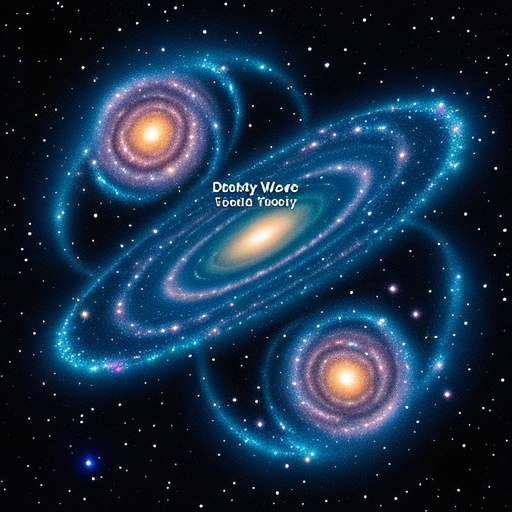 . It showcases the beauty and complexity of a galactic spiral pattern. The arms seem to flow smoothly, as if they are some sort of cosmic dance. But in reality, there is a lot of science behind this seemingly elegant display.
. It showcases the beauty and complexity of a galactic spiral pattern. The arms seem to flow smoothly, as if they are some sort of cosmic dance. But in reality, there is a lot of science behind this seemingly elegant display.
The density wave theory posits that spiral arms are regions of higher density that move through the galactic disk. To understand this better, let's first look at how the components of a galaxy behave. Stars, gas, and dust within the galaxy orbit around the galactic center. It's a bit like a giant cosmic carousel, with each object following its own path around the central point. When these materials encounter a density wave, they slow down and accumulate. This is similar to a traffic jam on a highway. Imagine a long stretch of highway where cars are moving at a steady pace. But when they enter a congested area, perhaps due to an accident or a construction zone, they slow down. The congestion appears as a stationary pattern even though individual cars are constantly moving. In a galaxy, the density wave acts as a gravitational "bottleneck" that causes matter to pile up.
As new stars form in these high - density regions, they contribute to the bright appearance of the spiral arms. The massive, short - lived stars in particular emit a large amount of light. These stars are like the flashy neon signs in a city, making the arms stand out against the rest of the galactic disk. For example, massive O - type stars, which are among the most luminous stars in the universe, are often found in the spiral arms. These stars have a relatively short lifespan compared to smaller stars, but during their brief existence, they shine incredibly brightly. Their light not only makes the spiral arms visible from great distances but also plays a crucial role in the overall energy balance of the galaxy. Here is an image that illustrates the concept of a density wave in a galaxy: 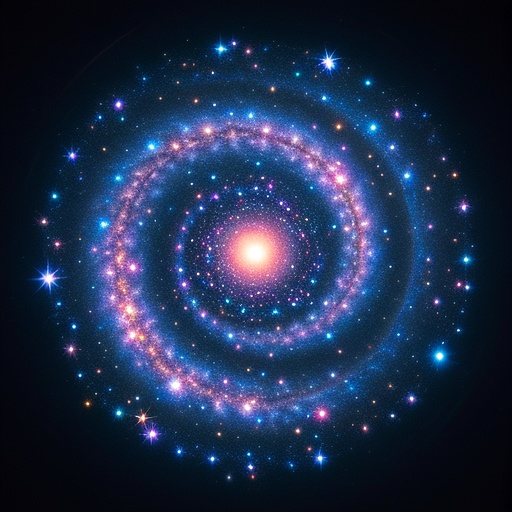 . It shows how the density wave causes matter to bunch up and form the characteristic spiral arms.
. It shows how the density wave causes matter to bunch up and form the characteristic spiral arms.
Another contributing factor to the formation of spiral patterns is the rotation of the galaxy itself. Galaxies rotate differentially, meaning that the inner parts of the galaxy rotate faster than the outer parts. This differential rotation can stretch and wind up the material in the galactic disk over time. Initially, small irregularities or disturbances in the disk can be amplified by the rotation. For instance, a passing satellite galaxy or a gravitational interaction with another nearby galaxy can trigger these initial disturbances. Let's say there is a small satellite galaxy that passes close to a larger spiral galaxy. The gravitational pull of the satellite can disrupt the normal motion of the stars and gas in the larger galaxy's disk. This disruption creates ripples and waves in the disk, which then get stretched and distorted as the galaxy rotates.
As the galaxy rotates, these disturbances get stretched into the characteristic spiral shapes. It's like taking a piece of dough and stretching it while it's spinning. The dough will start to form long, winding shapes. In the case of a galaxy, the differential rotation acts like the stretching force, and the initial disturbances act like the starting points for the spiral arms. Moreover, the self - gravity of the stars and gas within the galaxy also plays a role. The gravitational attraction between the matter in the disk helps to maintain the structure of the spiral arms and prevent them from quickly dissipating. If there was no self - gravity, the spiral arms would likely break apart and disperse into the surrounding space. This complex interplay between density waves, differential rotation, and self - gravity gives rise to the beautiful and distinctive spiral patterns observed in many galaxies across the universe.
Let's take a closer look at some specific examples of spiral galaxies. The Milky Way, our home galaxy, is a barred spiral galaxy. It has a central bar - shaped structure from which the spiral arms extend. The density waves in the Milky Way have led to the formation of regions where star formation is very active. The Orion Arm, where our solar system is located, is one such region. In this arm, new stars are constantly being born from the dense clouds of gas and dust. The differential rotation of the Milky Way has also contributed to the winding and shaping of its spiral arms over billions of years.
Another well - known spiral galaxy is the Andromeda Galaxy. It is one of the closest spiral galaxies to the Milky Way and is visible to the naked eye on a clear, dark night. The Andromeda Galaxy has a more prominent central bulge and well - defined spiral arms. The density wave theory can explain the bright regions in its arms, where massive stars are forming. The differential rotation of Andromeda has likely been influenced by its interactions with other nearby galaxies over time. For example, it may have had gravitational encounters with dwarf galaxies that have contributed to the formation and evolution of its spiral patterns.
Studying galactic spiral patterns is not just about satisfying our curiosity about the beauty of the universe. It also provides valuable insights into the formation and evolution of galaxies. By understanding how density waves, differential rotation, and self - gravity work together, astronomers can better model the growth of galaxies from their early stages to their current forms. This knowledge can also help us understand the distribution of matter in the universe and how it has changed over time.
However, there are still many mysteries surrounding galactic spiral patterns. For example, some spiral galaxies have multiple arms, while others have only two. What determines the number of arms a galaxy has? Also, the exact nature of the density waves is still not fully understood. Are they permanent features of a galaxy, or do they come and go over time? These are questions that astronomers are actively researching.
Advances in technology, such as more powerful telescopes and sophisticated computer simulations, are helping us to get closer to answering these questions. For instance, the Hubble Space Telescope has provided us with incredibly detailed images of spiral galaxies, allowing us to study their structure and composition in greater detail. Computer simulations can mimic the physical processes that occur in galaxies, helping us to test different theories and understand how the various factors interact. In the future, we can expect to learn even more about the mystery of galactic spiral patterns, unlocking the secrets of these cosmic masterpieces.
Here is an image that shows the rotation of a galaxy: 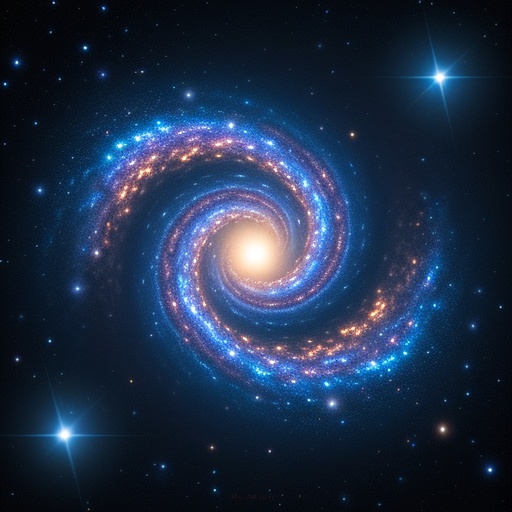 . It gives us a visual representation of how the differential rotation of a galaxy can contribute to the formation of spiral patterns. As we continue to explore the universe, we are constantly reminded of how much we still don't know, but also of the amazing discoveries that await us.
. It gives us a visual representation of how the differential rotation of a galaxy can contribute to the formation of spiral patterns. As we continue to explore the universe, we are constantly reminded of how much we still don't know, but also of the amazing discoveries that await us.
